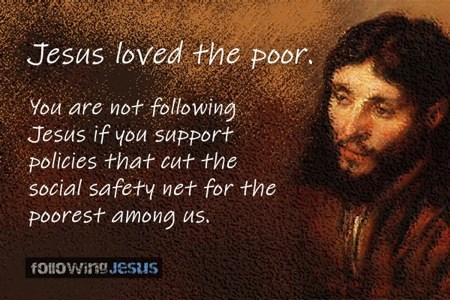Peace & Justice 30 September
30 Sep 2020 by Rev Lofa Anga’aelangi in: Latest NewsHi everyone,
This is the eighth of our monthly emails for 2020 to our Social Justice Email Contact List which we are now calling Peace and Justice Monthly Newsletter.
September has been a very busy month in the life of the Christian church seeing that we continue to shed light on Social Justice. That’s not to say we as the body of Christ are limited to highlighting social justice issues in the month of September. Nevertheless, September is a month that reminds us that controversial matters shall be not indifferent to how our faith should inform our politics. The Student climate strike, Seasons of Creation or the International Day of prayer for the care of Creation, International Day for the Preservation of the Ozone layer, The international Day of Peace, World day of Migrants, and refugees, and Social justice Sunday. The list continues for other denomination and religious tradition. Our participation in the mission of God, to confront and expose the complexities of our human nature, assuredly embodies those complication. Although systemic and institutionalised injustices are woven to fabricate a web that validates an unjustified political system. Our DNA as church is to be prophetic and pastoral in its response to the wider community and the rest of the world. In doing so we can still see Gods, at work in all people, from the words of Rev. Dr. Jason John
“Mission is not only ecumenical but may cross religious boundaries also. Any who work out of love, for humanity and the creation, may potentially be valuable allies in the struggles against evil. While God wants all people to come to a fuller understanding of [God], through Jesus, this is not only God’s concern. Justice and compassion for those marginalised by society, amongst people and amongst the whole creation, is one of God’s concerns. God is especially concerned for the poor and marginalised within…creation, those who do not fit the ‘system’, and who suffer because of it. This is not because they are more moral or pure than others, but because Jesus himself was such a person, and in being for the marginalised, and in identifying with them, we identify with Christ.”
As we identify with Christ, we know that the humility of Christ led him to take on humanity, he suffered and rise with us. Our call then is to be prophetic, advocate and take a stand for those who are at the margins. My fellow peace and justice friends let us continue to disrupt what is seen as the norm in our society.

BLM Panel
The Uniting Church chaplaincy, together with a panel of academics, uniting leaders who are well equipped in the discussion of racial justice issues hosted a webinar on Black lives matter. The purpose of the webinar is to attend to a conversation which has been long overdue for the church. That is not to say the church has not facilitated a conversation on the issue. The panel is a group of people of who are passionate coming together creating a space, to hold and ask hard questions. The prime concern of the webinar was to identify the connections of racial discrimination and its relationship to our first nation people and for conversations over such matters in our Australian context ...
In doing this we were grateful, to hear from Hayden Charles, a young man of Indigenous background. Hayden shared his story about being profiled at a Woolworths supermarket. He was followed around the shop by workers for at least 20minutes. When he came to check out, around seven to eight, the workers circled him and asked to check his bag. After finding nothing they let him go. When asked about he’s feelings after the horrible event, Hayden’s response “He felt worthless and he felt something was wrong with him”. A few weeks later he felt something was not right about the confrontation and proceeding with the employers at Woolworth.
He came back and asked to speak with the manager of Woolworths, he was given a hundred dollars voucher. When Hayden asked if there are programs for staff training based on diversity, they thanked Hayden, for his feedback and will be in touch. Hayden last statement is “There is no place for racism in Australia”. The panel discussed some of the issues from Hayden’s’ experience the negative profiling of a person of colour, the use of a voucher to “resolve” something of a deeper issue, the feeling. The webinar was for an hour and 15minutes, we received many positive feed-back and thanking us for facilitating the space. The next webinar will be on Sunday 25th October at 3pm.
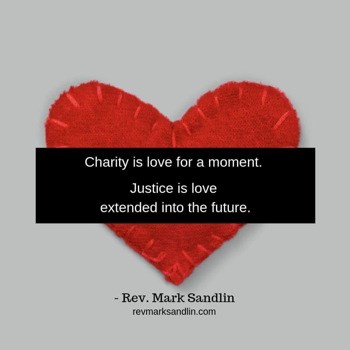
Christian Student Climate festival
The 'CSU Climate Fest' an online climate festival presented by Christian Students Uniting! The hope is to share the everyday climate actions steps we take to encourage Christian's across the life and diversity of the Uniting Church to reduce their impact on the environment.
This unique event focused on young people sharing their gifts and skills - peer to peer - with the Church! We want to help resource and encourage our communities with some practical tools for living sustainably and the know-how to do our part to ensure climate resilient future. A few of us joined the online event. I thank Glynn Larkins for sharing her precious and thoughtful piece reflection on the climate festival:
This was my first experience of a Climate Festival and I am very glad to have been able to attend. It took the form of a series of short recorded and live sessions, all but one presented by young adults, acknowledging the damage humanity continues to do to Creation and seeking to share skills, knowledge and actions to care for all of Creation. I was impressed and encouraged by their passion and sincerity, but also deeply challenged by their commitment to walk the talk – these are Christians seeking to live out their convictions and bring about real change in and through their everyday lives.
I also saw many opportunities for intergenerational and community connections to be built. Several of the topics presented practical skills – gardening and composting, beeswax wraps, bead baking, having a beehive, candlemaking, many of which are more associated with an older generation. These young adults have been learning these skills for themselves – surely this could be a shared experience in some churches and communities (at least ‘post COVID’). I also wondered what we can learn about passing on/sharing these skills that could inform faith sharing between generations.
Other videos involved creative artistic skills such as music, poetry, art, coconut candles… and I was reminded of the need to lament our action or inaction, to consider the use of prophetic voices to call for climate action on small and large scale, to be resourceful not wasteful, to simply go out and enjoy nature, to be creative in whatever ways I can that express my relationship with the environment – song, poetry, art, photography, pottery, candles… and share that with others. Enjoying nature creates awareness and appreciation which helps bring about change.
A few videos addressed the ‘facts and figures’, in ways that not only informed and challenged but also enabled, by suggesting achievable steps - just as the Christian walk involves discipleship and transformation, so too action on climate change is a journey that involves being informed and transformed. Ethical and sustainable eating discussed ways of adapting our behaviour to be more sustainable. Community organizing- rethinking power addressed power as an ability to act and encouraged acting with others as a way of providing agency. Superannuation and climate change highlighted the need to know where your super fund is investing your money, to ask whether it is in companies supporting ethical and sustainable practices, to discuss this with family and friends and to send a strong message to companies by moving your funds if necessary.
Finally, the story of a grandmother who became a climate activist a few years ago when she realized that the environment was running out of time – that her granddaughter would be less than 20 when irreversible changes will have occurred. Her calls for collective action, protests, and submissions have taken her on a new path, but are bearing fruit as she meets and works with others in her community. As she said, taking action is scary for her, but she is more scared of the future for her granddaughter than she is of what she is doing.
To view these videos, go to https://www.csu.org.au/csu_climate_fest
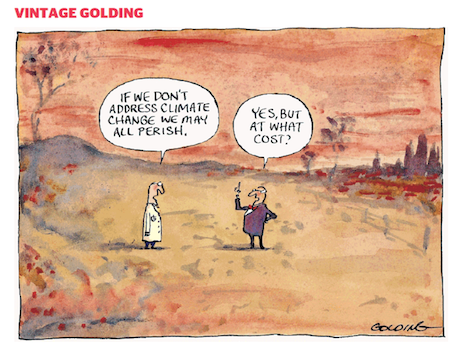
School strike for climate action – Theme: Fund our future not gas
The school strike for climate action this year was themed fund our future not gas. The recommendations that no public funds be used for gas and other damaging fossil fuel projects. Instead, recovery funds should be spent on:
- Resourcing Aboriginal and Torres Strait Islander-led solutions that guarantee land rights and care for country.
- The creation of jobs that fast-track solutions to the climate crisis and help communities recover.
- Projects that transition our economy and communities to 100% renewable energy by 2030, through expanded public ownership.
The UC Assembly has also asked members to show support by sending in a selfie with the hashtag #Fundourfuturenotgas. There were a number of selfies with many of our members, it reflected a positive support for the project. I had asked Jessica Morthorpe to share a reflection on how she felt about the climate strike this year.
I suppose today is terror and frustration, but also relief and inspiration. I'm terrified of what climate change is going to mean for my daughter. Instead of celebrating the wonder of having my first child I'm wondering what kinds of bushfires, floods, extreme weather and natural disasters she is going to have to live through, even before she gets to my age. I'm frustrated because the COVID recovery investment needed is such an incredible opportunity to invest in renewable energy and catch Australia up to where we should be in terms of planning for a better, more sustainable future - one with health, jobs and nature for all. But instead the government is wasting the opportunity on investing in another fossil fuel!! When renewables are cheaper than gas! It makes no sense at all. But also, relief, to gather with others and have a chance to raise my voice on the issue, and inspiration because the SS4C kids are so amazing, and even though this should not be their burden, they are leading anyway, and doing an amazing job!
Jessica Morthorpe
Thank you, Jessica and congratulations to you and John, on the arrival of baby Isabella Evelyn McCarten.
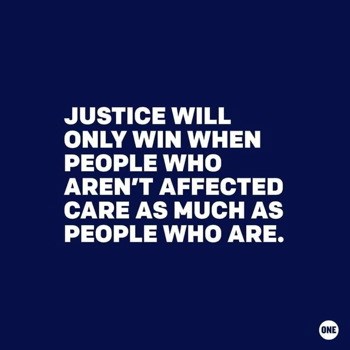
Writing letter for advocacy and meeting with your MP training.
A few of us from the peace and justice group attended the training with Jon Obrien and the advocacy team from Uniting. I think the rest of the participants would agree that the training was thorough, well organized and aligned with our inquiries. Most of us have written letters to MP’s and for advocacy. Yet, the training felt like an affirmation of our uncertainty and what we aim to do as a group. The materials were very interesting, the techniques and tips for face to face meetings. I particularly enjoyed stories and experiences that was shared by the participants and facilitators they made the content easily understandable.
We like to thank Jon and his team for their leadership. Thanks to everyone who participated in the workshop and training.
Upcoming events
7 October to 11 November: Virtual Building Bridges 2020
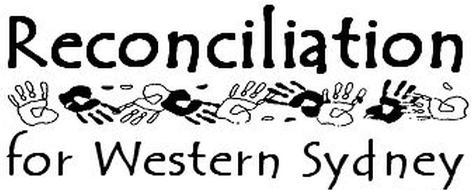
Free online events every Wednesday from 7.15pm for a 7:30pm start – 8:30pm http://reconciliation4westernsydney.org
7 October: First Nations Women and Discrimination in the Justice System
Tabitha Lean, a Gunditjmara woman and freelance writer, and Debbie Kilroy OAM, CEO of Sisters Inside, are both leading advocates for women and children
https://www.eventbrite.com/e/first-nations-women-and-discrimination-in-the-justice-system-tickets-123408657617
14 October: Voice, Treaty, Truth and The Victorian Treaty Process
Lidia Thorpe, a Gunnai Gunditjamara woman, the first Aboriginal in the Victoria State Parliament. She is now a Senator in Federal Parliament, replacing Richard Di Natale. Lidia is an activist and strong advocate for clans-based treaties.
https://www.eventbrite.com/e/voice-treaty-truth-the-victorian-treaty-process-tickets-123567817669
21 October: “We must remember together”
Djon Mundine OAM, Bandjalung Man, Aboriginal Curator, Writer, Artist, Activist.
He will speak about the need for acknowledging the Truth and Justice of this country.
28 October: Treaty/ies – Where to from here?
Lynda-June Coe, Wiradjuri and Badu Island woman. Lynda is a cultural educator, activist and PHD candidate and a representative of Fighting In Solidarity Towards Treaties (FISTT)
https://www.eventbrite.com/e/treatyies-where-to-from-here-tickets-123650801877
4 November: Opportunities and Challenges of Implementing "The Uluru Statement from the Heart"
Tom Mayor a Denadth Kes man (Torres Strait Islander) who lives on Larrikia land in Darwin. He is the National Coordinator for the Uluru Statement from the Heart. Thomas has been involved in the whole process and taken the conversations to many local settings and organisations. His highly acclaimed book "Finding the Heart of the Nation – The Journey of the Uluru Statement towards Voice, Treaty and Truth" was published in 2019
11 November: First Law Justice: Land, Living Waters and Indigenous Peoples’ Wellbeing
Aunty Anne Poelina, Nyikina Warra Traditional Custodian and Guardian of the Martuwarra (https://martuwarrafitzroyriver.org/) - tbc
